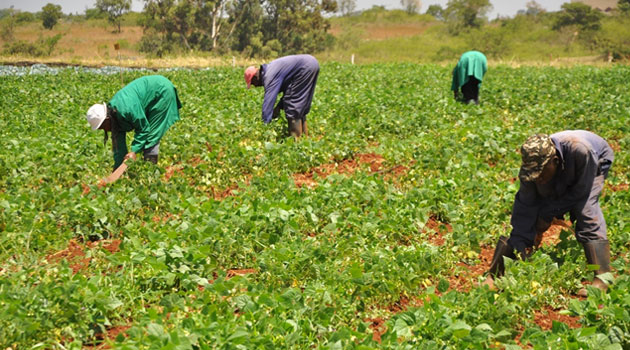Though agricultural sector spending as a percentage of total government expenditure in 2023 increased marginally to 1.95 percent above the previous year’s figure of 1.86 percent, the Peasant Farmers Association of Ghana (PFAG) has expressed concern that the allocation is still far below the expected 10 percent commitment made under the Malabo declaration.
Ghana is a signatory to the Comprehensive African Agricultural Development Programme of 2003 (Malabo Declaration), in which member-countries were expected to increase agricultural investment to 10 percent of annual budgets to culminate into, at least, six percent growth in the sector annually; but the country has failed to do that since.
The PFAG, at a stakeholder dialogue on the state of agriculture in the country and failure of the 2023 budget to address the most crucial challenges facing the sector, noted that next year’s budget lacks drastic and far-reaching interventions to salvage the growing state of food insecurity in the country.
The Association’s Programme Officer, Bismark Nortey said: “We are calling for consideration to increase investment in the agricultural sector, provided we actually want the sector to lead in the economic transformation and developing Ghana Beyond Aid”.
Executive Director of PFAG, Dr. Charles Nyaaba, said underinvestment in the sector is underscored by MoFA’s actual budgeting expenditure averaging just 1 percent of total government expenditure from 2018 to 2021.
He said though there are expectations that government will prioritise agricultural investment in this era of economic crisis, the sector’s growth-woes should be a matter of concern to stakeholders.
“Given the high rate of inflation at about 40.5 percent, the nominal value of total budget allocation has reduced – while allocation to the agricultural sector in real terms has declined by 40.5 percent. This should be a matter of concern to every actor, as it is expected that in this era of economic crisis government would have prioritised agricultural investment. It must also be noted that government’s actual expenditure has always been about 28 percent lower than budget allocation [to the sector],” Dr. Nyaaba said.
PFAG says though it is aware of investments in other ministries – such as feeder roads under the Ministry of Roads and Highways and investment in technology and research with the Ministry Science and Technology and agriculture-related investment in the Ministry of Education usually used in the computation of agricultural investment – there will not be any significant changes that can lead to 10 percent investment in the agricultural sector when such computations are done.
“Considering the state of agriculture and state of food insecurity, our expectation of key provisions to drive agricultural transformation, improve food production, reduce food prices and improve farmers’ livelihoods have not been met in the 2023 budget,” the Association emphasised.










